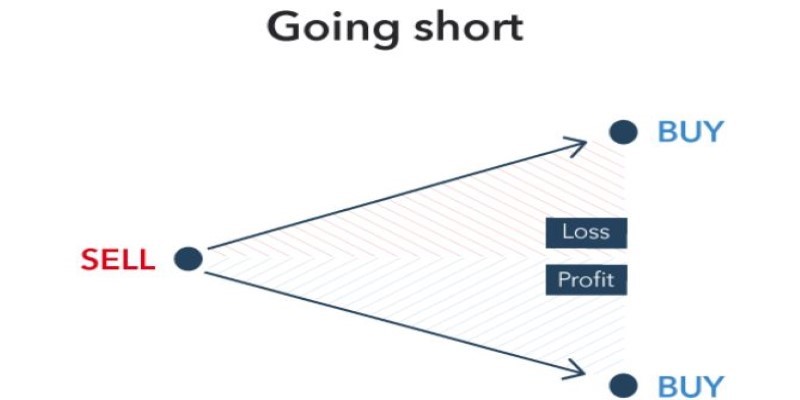10 Tips to Stick to Your Financial New Year’s Resolutions
Setting financial New Year’s resolutions is a great step toward managing your money better and achieving your goals. However, sticking to those resolutions can be challenging without the right plan. Whether you want to save more, spend smarter, or pay off debts, staying committed is key. The good news is that with a few practical tips and some determination, you can stay on track all year long. Here are 10 simple and effective tips to help you achieve your financial goals and make 2025 your best year yet.
Set Specific and Realistic Goals

For successful financial goal achievement it is vital to establish clear realistic objectives. Avoid standard goals that lack details such as saving funds because it's essential to create concrete financial targets including "Save $5,000 by December for an emergency fund" as well as "Pay off $2,000 from credit card debt in six months."
The combination of specific and realistic financial objectives gives you both a clear destination to focus on and the realistic chance of reaching it according to your present financial resources. The act of breaking bigger objectives into practical steps allows you to handle them easily while enjoying mid-way achievements to stay active toward your targets.
2. Create a Budget
Organized budgets function as the fundamental strength which supports effective financial planning. To make informed financial choices you must first monitor your earnings and expenses to establish a clear spending picture. You must sort your spending between necessary costs including housing and groceries together with less important spending like entertainment along with dining out expenses. A complete financial planning process begins with understanding expenses to allocate funds specifically for stated financial goals.
Consider using budgeting tools or apps to simplify the process and stay organized. Stick to your budget by reviewing it regularly and making adjustments as needed. Remember, a good budget is flexible, allowing you to adapt to unexpected expenses without losing sight of your primary goals.
3. Build an Emergency Fund
Life is unpredictable, and an emergency fund serves as your financial safety net for unexpected expenses like medical bills, car repairs, or even job loss. To stay prepared, aim to save enough to cover three to six months of living expenses in an account that’s easily accessible when you need it most.
Start building your fund by setting small, consistent contributions, even if it’s only $20 or $50 per paycheck. Over time, these contributions will add up, providing you with a financial cushion and peace of mind. Treat your emergency fund as untouchable unless a true emergency arises.
4. Automate Your Savings
Automating your savings is a simple and effective way to stay on track with your financial goals. By scheduling regular transfers from your checking account to your savings account—ideally right after payday—you can make saving effortless. This "set it and forget it" strategy eliminates the temptation to spend that money elsewhere, turning saving into a priority without requiring constant effort.
You can also automate contributions to specific goals, like your emergency fund, retirement account, or a vacation fund, by setting up separate accounts for each purpose. Many banks and financial apps allow you to create savings “buckets” to keep your funds organized.
5. Use Cash Instead of Credit
While credit cards can provide convenience and rewards, they can also lead to overspending and high interest charges if not managed properly. Consider using cash for your everyday expenses instead of relying on credit to stay within your budget.
If you use credit cards, try to pay off the full balance each month to avoid interest and prevent debt from building up. For existing credit card debt, consider transferring it to a card with a lower interest rate or consolidating it into a personal loan to reduce interest costs.
6. Cut Back on Impulse Purchases
It’s easy to give in to impulse purchases when something catches our eye, but these unplanned expenses can quickly add up and derail our financial goals. Before making a purchase, ask yourself if it aligns with your budget and if you really need it. Consider implementing a waiting period of 24 hours before buying non-essential items to see if the desire passes.
You can also try using cash only for discretionary spending to curb impulse purchases or setting a monthly budget for non-essential items like clothing or dining out.
7. Take Advantage of Discounts and Deals
Being savvy about sales, coupons, and discounts can help you save money on essential purchases and stretch your budget further. Look for deals on groceries, household items, insurance premiums, and other regular expenses to cut costs.
When shopping online, use browser extensions that automatically search for coupons and promo codes at checkout or sign up for email newsletters from your favorite stores to get notified of sales and discounts. Just be careful not to fall into the trap of buying something just because it’s on sale.
8. Review Your Subscriptions
Subscriptions are another expense that can quickly add up without us realizing it. Take a look at all your recurring subscriptions, such as streaming services, gym memberships, or monthly boxes, and decide if you truly need them all. Cancel any you don’t regularly use or find a more affordable alternative.
You can also try negotiating with service providers for better deals or bundling services to save money. Consider setting a reminder to review your subscriptions every few months to ensure you’re not paying for services you no longer use.
Prioritize Paying Off Debt

High-interest debt can take a serious toll on your financial well-being, making it harder to achieve important goals like saving for retirement or purchasing a home. To regain control of your finances, prioritize paying off high-interest obligations such as credit card balances or personal loans. Taking this step first can pave the way for a more secure and prosperous future.
Consider using the snowball method, where you pay off the smallest debts first while making minimum payments on larger ones, then "snowball" those payments onto the next largest debt until they are all paid off.
10. Seek Professional Help
Managing your finances can feel overwhelming, especially if you have multiple financial goals or complex situations. Consider seeking help from a financial advisor who can provide personalized advice and guidance on budgeting, saving, investing, and more. They can also assist with creating a comprehensive financial plan and adjusting it as needed over time. Remember, investing in professional help now can save you money and stress in the long run.
Conclusion
Making smart financial decisions and setting achievable goals takes time and effort but is well worth it in the long run. By following these tips, you can take control of your finances and work towards a more secure and fulfilling future. Keep learning, stay disciplined, and don't be afraid to seek help when needed. Remember, financial stability is a journey, not a destination.












